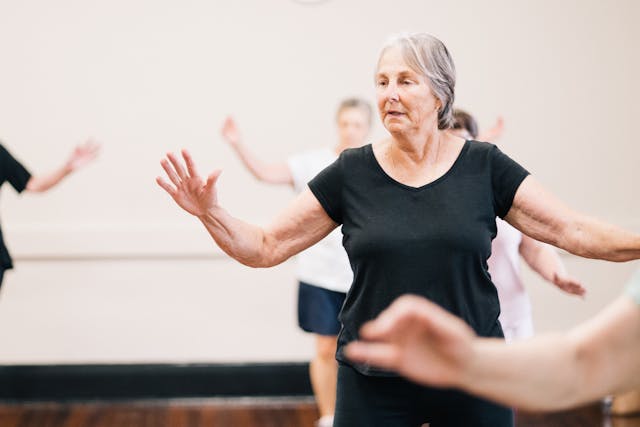Aging brings inevitable changes. Retirement ends workplace routines. Losing a spouse leaves an empty space in daily life. Adult children relocate, work relationships fade, and once-vibrant social networks shrink into silence.
For older adults, these changes create more than emotional challenges – they pose serious health risks. Research links social isolation to higher rates of cognitive decline, chronic illness, depression, and earlier mortality. Yet isolation remains modifiable and addressable with proper attention.
Common Isolation Triggers
Social isolation usually builds gradually through a combination of life changes. Retirement removes daily structure and interaction, while the loss of a spouse or friend eliminates key emotional and social support. Mobility issues and lack of transportation limit community involvement. Hearing loss and chronic health problems make communication and participation more difficult. As family members move away, casual contact declines. These challenges often reinforce each other, leading to increased withdrawal and difficulty re-engaging socially.
The Health Benefits Of Connection
Regular social interaction supports cognitive and physical health. Conversations stimulate brain activity, helping maintain memory and language skills. Research shows that social engagement activates cognitive areas, building resistance to decline.
Physically and socially connected individuals typically show lower blood pressure, reduced stress hormones, stronger immune function, and better sleep patterns. Simply belonging to a social network encourages healthier habits and emotional resilience. Health organizations now rank social isolation alongside smoking and obesity as a significant health risk.
Starting To Reconnect
Rebuilding social connections requires effort but begins with manageable actions. Weekly coffee with a neighbor or scheduled family phone calls provide needed structure. Regular community classes or group meetings gradually restore comfort with social interaction.
Pursuing shared interests offers natural connection opportunities. Community centers frequently host discussions, workshops, and classes designed for older adults, providing structured environments where conversation develops naturally.
Intergenerational programs connect seniors with younger community members through mentoring, storytelling, or collaborative activities. These relationships provide energy while creating meaningful cross-generational connections.
Overcoming Emotional Barriers
Grief and major life changes often create invisible walls around older adults. After losing someone close or moving away from familiar places, reaching out for new connections becomes harder than it should be. Fears creep in – rejection, becoming someone else’s problem or simply feeling out of place in new environments.
These feelings deserve recognition. Small steps work better than grand gestures. Uncertainty belongs in this process. Moving forward doesn’t erase meaningful relationships from the past, rather it creates space for both memories and new bonds to exist together. Talking with others in similar situations through support groups or professional counselors builds the emotional strength needed to cross these barriers and rediscover social confidence.
Use Digital Tools Purposefully
While in-person interaction remains ideal, technology provides valuable supplements. Video calls enable face-to-face communication with distant families. Online groups and virtual classes allow engagement from home. Many community centers offer technology training specifically designed for older adults, making these tools more accessible.
Volunteer
Contributing to community needs creates both meaning and social connections. Volunteer positions (reading to children, assisting at community organizations, or sharing knowledge at cultural institutions) create relationships through shared purpose. The combination of meaningful contribution and social interaction proves particularly beneficial.
Support From Family And Caregivers
Those supporting older adults can significantly facilitate reconnection. Staying in regular contact, offering transportation to events, and helping navigate technology all play crucial roles. Families can also be proactive in watching for signs of isolation, such as increased withdrawal or reduced self-care.
Sometimes, modest assistance removes major obstacles to social participation. Simply providing a ride or helping with an online registration can open doors to valuable connections.
Memory Care Considerations
For those with cognitive changes, social needs remain equally important but require thoughtful adaptation. Memory care facilities structure environments specifically to support a continued connection despite cognitive challenges. These specialized communities design programming that maintains social engagement regardless of memory status.
Quality memory care facilities incorporate social connection into daily routines through small group activities tailored to abilities, thoughtfully designed common areas, and trained staff who use communication methods adapted to cognitive changes. Family involvement also remains key. Visits focused on shared activities, music, and photos can help preserve meaningful relationships.
Building A Sustainable Social Routine
After restarting social interaction, sustainability becomes the key challenge. Regular, planned social engagement works better than random, occasional meetups. Set up weekly classes or monthly meals to create predictable connection points. These regular touchpoints prevent isolation gaps and weave social contact into everyday routines.
Practical tools like digital calendars and shared scheduling apps help maintain these commitments. Close contacts can support this process through regular check-ins and shared activities. The rhythm of consistent social engagement gradually strengthens social confidence and makes interactions feel more comfortable over time.
Moving Forward
Rebuilding social connections after significant life transitions like retirement keeps minds sharp, emotions balanced, and bodies healthy. The process takes patience, but even small steps yield meaningful benefits. Social connection remains fundamental throughout life. No one functions best in isolation, regardless of age or circumstance.
Reaching out, whether taking action personally or supporting someone else’s efforts, creates paths back to the connection humans naturally need. The journey back to connection might begin with something as simple as a phone call, a class registration, or a neighborhood walk. These small steps often lead to significant improvements in wellbeing and quality of life.

